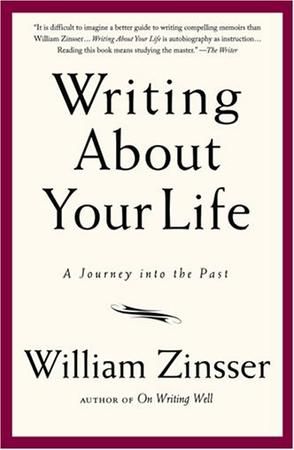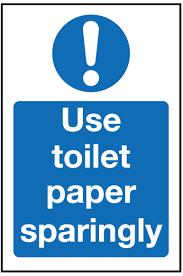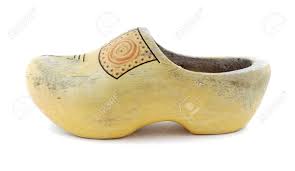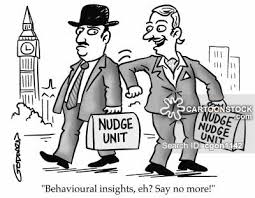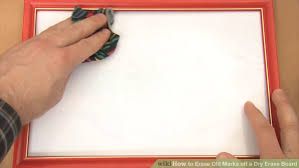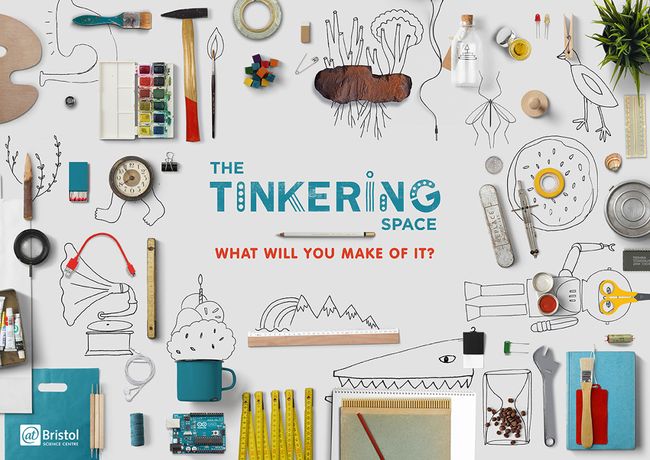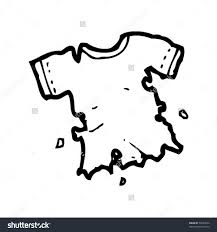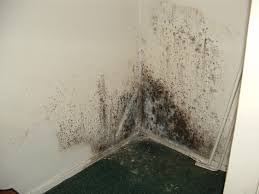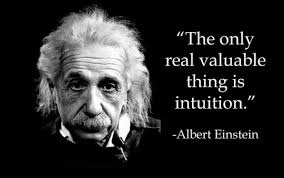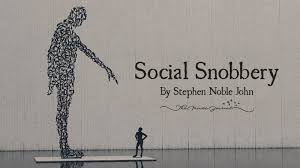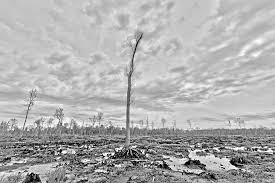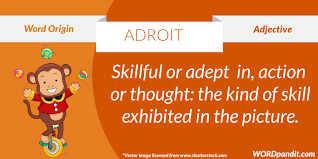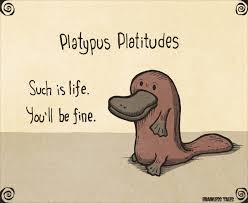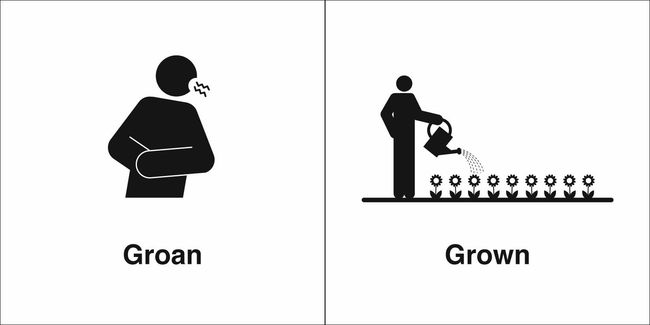Along the way in these memoirs William Zinsser pauses to explain the technical decisions he made as he wrote them. They are the same decisions you’ll have to make as you write about your own life: matters of selection, condensation, focus, attitude, voice and tone. Written with elegance, warmth and humor, Writing About Your Life gives you the tools to organize and recover your past and the confidence to believe in your life narrative. It also gives you permission—through the example of a life enriched by change and risk—to make bold life choices of your own.
这周读的章节我最感兴趣的是写人物自传回忆录那章,也许是接触回忆录比较多一点的原因。刚刚在网上看到Zinsser写的另外一本写作书"Writing About Your Life ",看了豆瓣上的简介, Zinsser利用十三章讲解了过去作为作家、编辑者、老师和旅行者的刺激、戏剧性、有趣的生活回忆。写回忆录要有选择性、重点和态度...同时还要有人文关怀与温暖。这与我们前几天读的回忆录那章有很多相同的地方。写回忆录并不是像自传一样全盘复述,最重要的还是细节,不要有陈词滥调。
PART ONE VOCABULARY
1.scraps, morsels, admonitions
scrap和morsel对应标题bits&pieces,是它们的近义词,但是又有不同
scrap:a small piece of paper,pieces of food that are left after you have finished eating碎片、一丁点、残羹剩饭A broken or irregular part of something that often remains incomplete.剩下的一点
morsels:is a very small amount of something, especially a very small piece of food.食物的一点点
admonition:a warning to sb about their behavior.An opinion suggesting a wise or proper course of action.
2. clenched
clench:to hold sth tightly that shows you are angry,determined or upset.or hold sth tightly
clench和clinch以前可以通用,但现在clench指实际的动作,clinch指心理上的动作。比如clench the hand,clinch the bargain
3. whittles
whittle means gradually make something smaller by taking parts away,or to cut a piece of wood into a particular shape by cutting off small pieces with a knife.
whittle...away是一个动词短语,to gradually reduce the amount or effectiveness of something, especially something that you think should not be reduced削减,减少
4.sparingly.
But again, it should be used sparingly.
sparingly:using or doing only a little of something
sparing:careful to use or give only a little of sth
e.g.we must be spraing with our resources
5.vexing
One of the most vexing new questions for writers is what to do about sexist language, especially the “he-she” pronoun.
vexing:to make someone feel annoyed or worried
之前我们学了一个irked和这个词很像
6.clog
clog:to block something or become blocked
之前我们文章也出现过block堵塞这个词,clog是它的同义词。还有一个意思是木屐鞋
7.nudge
nudge有好几种意思
1.to push someone gently, usually with your elbow, in order to get their attention用肘轻推以引起注意,在这里应该是读者让作者引起注意
2.to move something or someone a short distance by gently pushing轻推移动
8.erase
erase:to get rid of something so that it has gone completely and no longerexists。这个单词好几种意思,有从电脑上消除记忆,有抹掉笔迹,这里是彻底消除
e.g.our dream is to erase poverty and injustice from the world.
9.tinkering
tinkering:to make small changes to something in order torepairit or make it work better修理
10.ragged
ragged:(alsoraggedy)having aroughunevenedgeorsurface不规则
11.humdrum
humdrum:boringandordinary, and having novarietyor interes单调而乏味
12.fatigue
Bradley’s book is also an excellent travel journal, catching the fatigue and loneliness of the professional athlete’s nomadic life—the countless night flights and bus rides,
不可数名词,等于exhausted,表示very great tiredness
13.stenuous,joviality
strenuous:active and determined,vigorously active
joviality:markedly good-humored especially as evidenced by cheerfulness and conviviality
e.g.a jovial weclome/host
14.embarking on
embark on/upon sth:to start to do sth new or difficult从事着手
e.g."before you embark on a journey of revenge,dig two graves."said by Confucius
15.quail at
quail at:to beafraidand show it byshakinga little bit or moving back slightly.恐惧害怕
16.musty
musty:smelling damp and umpleasant because of a lack of fresh air.有霉味
e.g.a musty room
17.intuition
intution:the ability to understand or know something because of a feeling rather than by considering the facts.这个词和instinct意思一样,直觉
e.g.feminine intuition女性的直觉
e.g.follow your instincts跟着自己的直觉
18.snobbery
snobbery:behaviourorattitudeswhich show that you think you are better than other people, because youbelongto a higher socialclassor know much more than they do – used to showdisapproval自以为的优越感,look down upon others
19.aptitude
They will write far more willingly about subjects that touch their own lives or that theyhave an aptitude for.
aptitude:natural ability or skill, especially in learning天资
20.desolate
and here—desolate,roughly surfaced, lined with eucalyptus and lemon groves— is Banyan Street.
desolate:a place that is desolate is empty and looks sad because there are no people there无人居住,
e.g.a bleak and desolate landsacpe
其他意思:someone who is desolate feels very sad and lonely孤独凄凉
21.distill,adroit
distill:to get the main ideas or facts from a much larger amount of information提取
distill something into something
adroit:cleve rand skilful, especially in the way you use words and arguments精明能干、尤指口齿伶俐
e.g.an adroit negotiator
22.lyrical
Also resist straining for the luminouslyricalphrase to describe the wondrous waterfall.
lyrical:1. beautifully expressed in words, poetry, or music抒情的 、浪漫的、热情奔放的
e.g.lyrical poetry
2.wax lyrical to talk about and praise sth in a eager way热情地讨论(赞美)
23.groaning,platitude
The other big trap is style. Nowhere else in nonfiction do writers use such syrupy words and groaningplatitudes.
platitude:a statement that has been made many times before and is not interesting or clever– used to show disapproval老生常谈,陈词滥调
groan:to make a long deep sound because you are in pain, upset, or disappointed, or because something is very enjoyable呻吟,叹息
e.g.to groan with pain/pleasure,
还有抱怨的意思to complain sth等于moan SYNgrumble,whine
e.g.They are always moaning and groaning about how much thay have to do.
idiom:groan under the weight of sth被某物的折磨下喘不过气
动词短语
groan with sth:to be full of sth
24.autobiography、memoir
biography,autobiography,memoirs这三个词都是自传的意思,有什么区别?
biography:story of a person's life written by sb else,指由其他人撰写的传记
e.g.She is the author of several books, including abiographyof the artist Salvador Dali.
autobiography:story of a person's life written by that person,意思是“自传”(即自己为自己写的传记)书上说span an entire life包含了大部分的生活
e.g.This book clearly falls into the category of fictionalised autobiography.
memoirs:a person's written account of his life and experiences,意思是个人生活与经历的回忆录,也可译为“自传”。书上也说了memoris就是选取生活,并非全部都写
e.g.Quite a few have committed social suicide by writing their boring memoirs.
25.egotism
egotism:the belief that you are much better or more important than other people自我主义。前几天我们学了snob:someone who thinks they are better than other people because they know more about something – used to show disapproval,自命不凡。都是以自我为中心,贬义
ego:1.the opinion that you have about yourself自我,自我意识
2.technicalthe part of your mind with which you think and take action,according to Freudian psychology弗洛伊德心理学中的自我
26.permissive
By"permission"I don't mean "permissive."
permissive:not strict, and allowing behaviour that many other people would disapprove.放任纵容
permissive attitudes
permissive parents(who allow their chidlren a lot of freedom)
让我想起前几章一个单词self-indulge自我放纵,indulge其中有一个意思就是放纵:to let someone have or do whatever they want, even if it is bad for them
PART TWO THOUGHTS
这周对比第一周感觉读的顺利太多了,而且开始享受阅读的乐趣。尤其是Zinsser时时刻刻关怀读者,细致到标点符号的运用。这个我以前从未留意,上课时老师也没有点明,这真真是这周最大的收获。作者一直强调文章要简洁,符号的使用也是为了让句子更加明晰。一篇好的文章要百回改,这个让我感受到Zinsser的责任感,市面上好多翻译类的错漏百出,包括我自己写文章到最后都懒得润色。这种挑错作者十分享受坦言如赢得游戏版。写自己感兴趣的素材,以前写作文凡是遇到自己熟悉的就滔滔不绝,不熟悉的半天都写不出来。
这周读书时有很多感想,当作者讲到非小说也是种文学时,想到自己近几年读书都是选择读非小说类的。因为接受的信息快,而且大多是畅销书与时下的经济、政治文化都有挂钩。Zinsser在书中举例了大量书单,但是由于我对这些书的了解知之甚少,以至于读的时候都是跳读。但是查了一些反复出现的例子,比如《瓦尔登湖》,我虽然听过这本书却没有了解过,在得知这个作者在两年内在自己家附近的瓦尔登湖隐居了两年,期间多次修改这本书。在湖光山色中得到了心灵的宁静,之后我一定会拜读这本书,因为现下在这个信息时代我实在是太浮躁。还有Zinsser敬佩的乔治奥威尔,《1984》也列为了我拜读的书单。更有Stephen King,自从拜读了他的On Writing 后深感他能和Zinsser能成为好朋友,他提到自己每天雷打不动地坚持写作,无论是圣诞节还是生日都如此。
PART THREE SUMMARY
